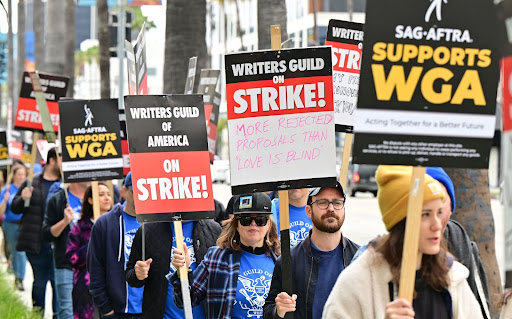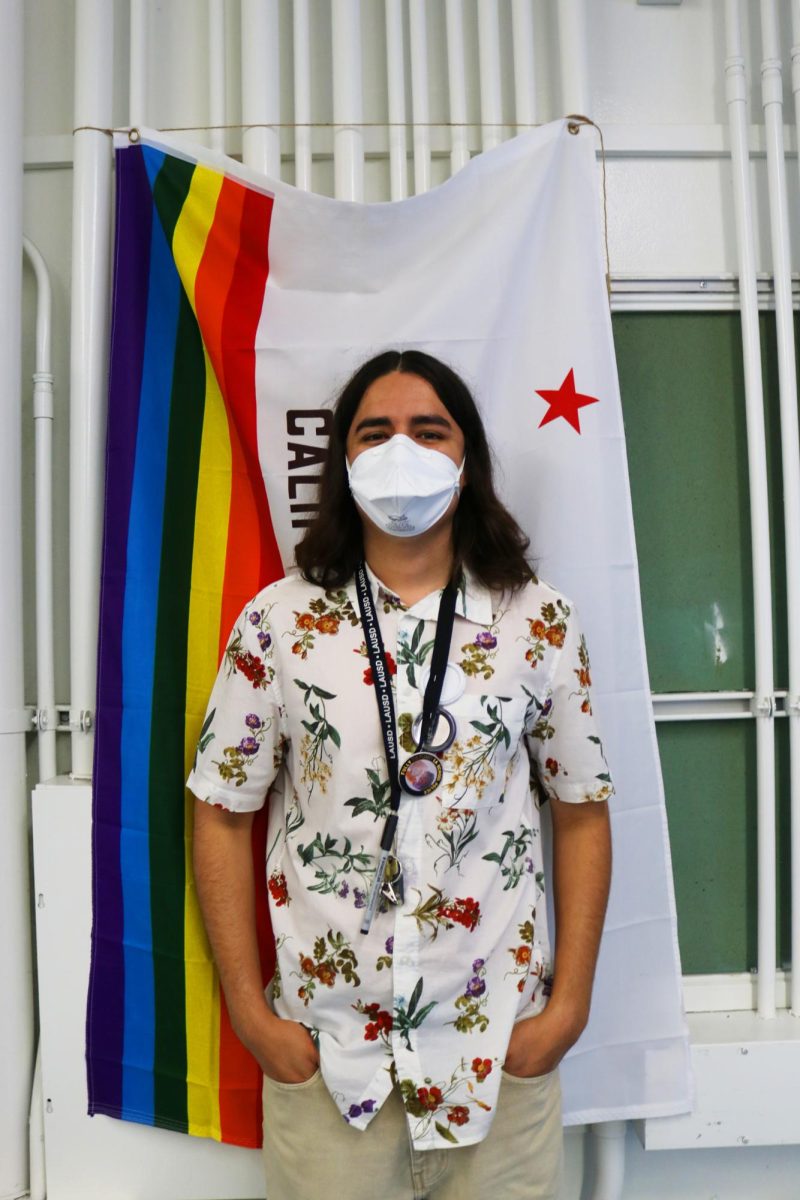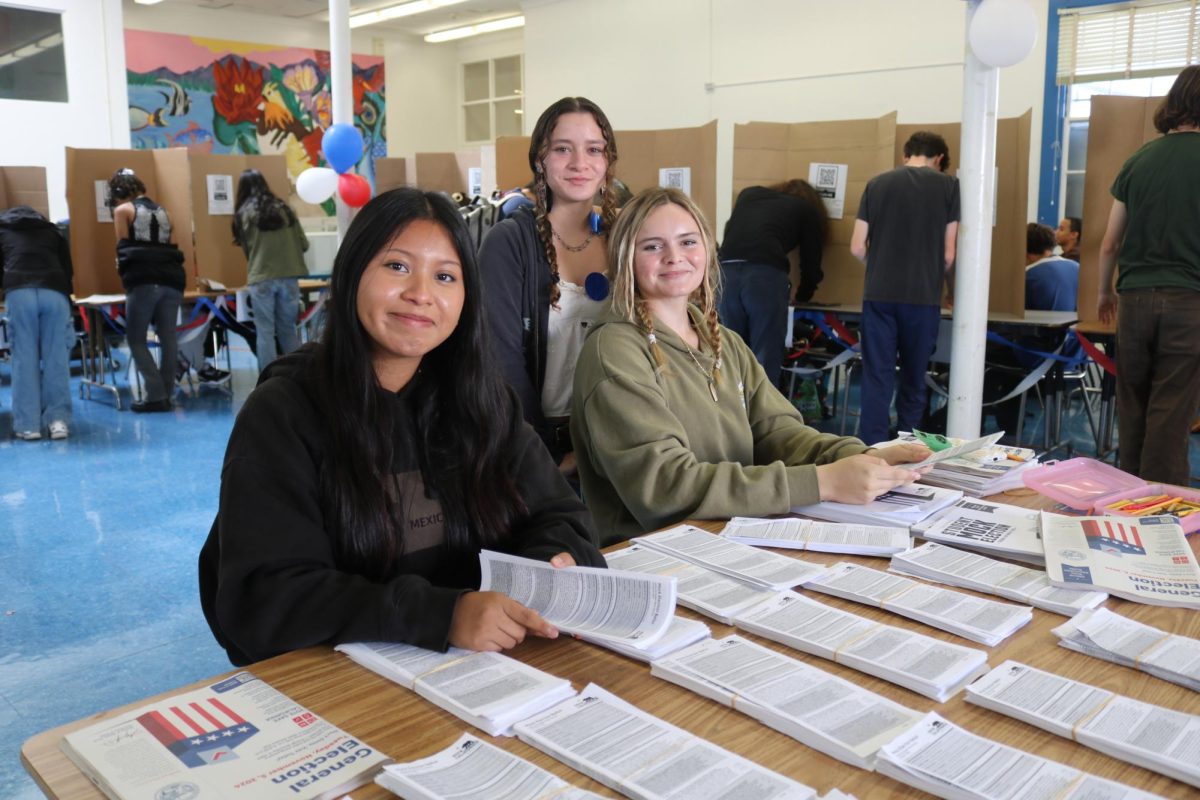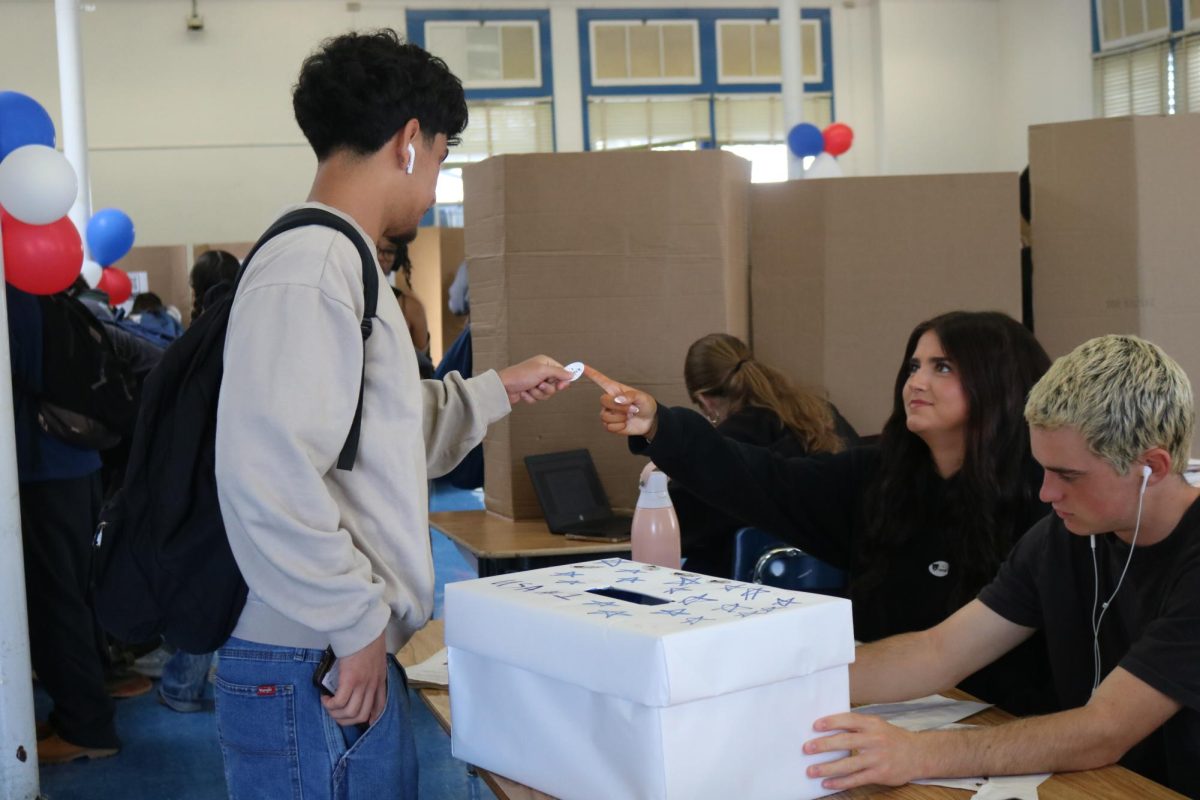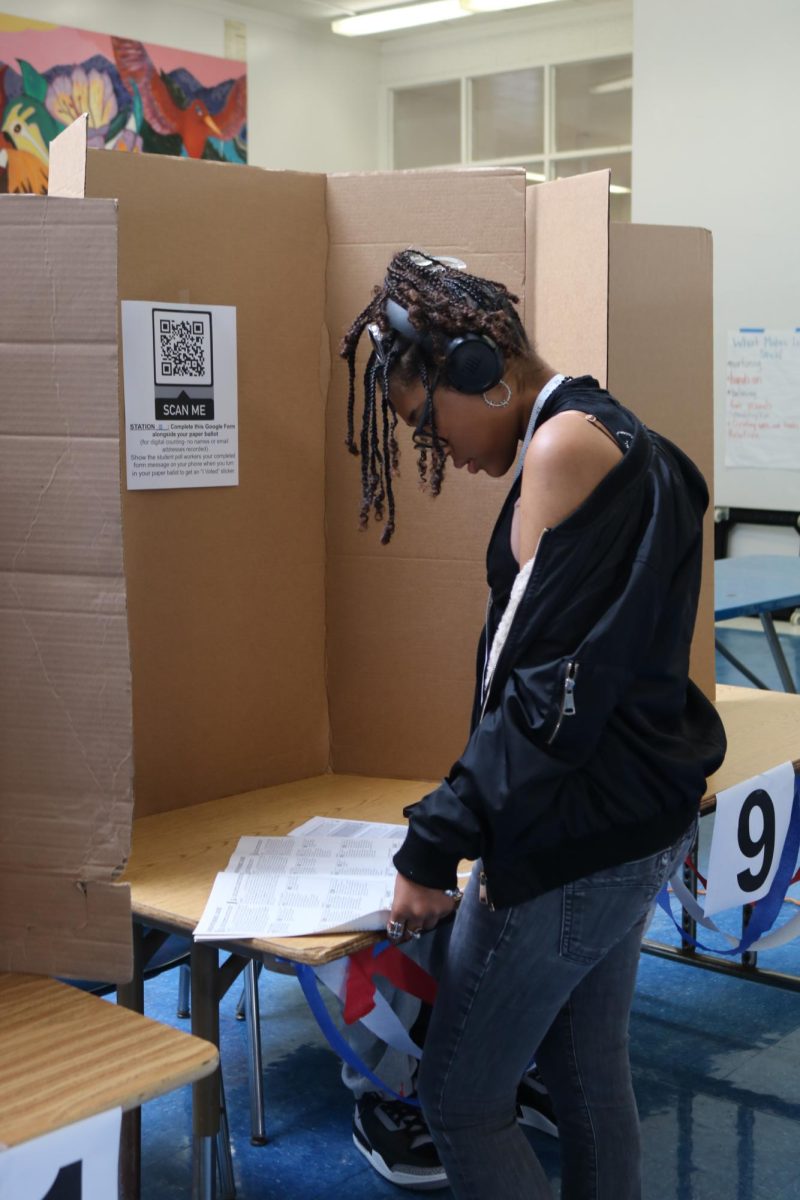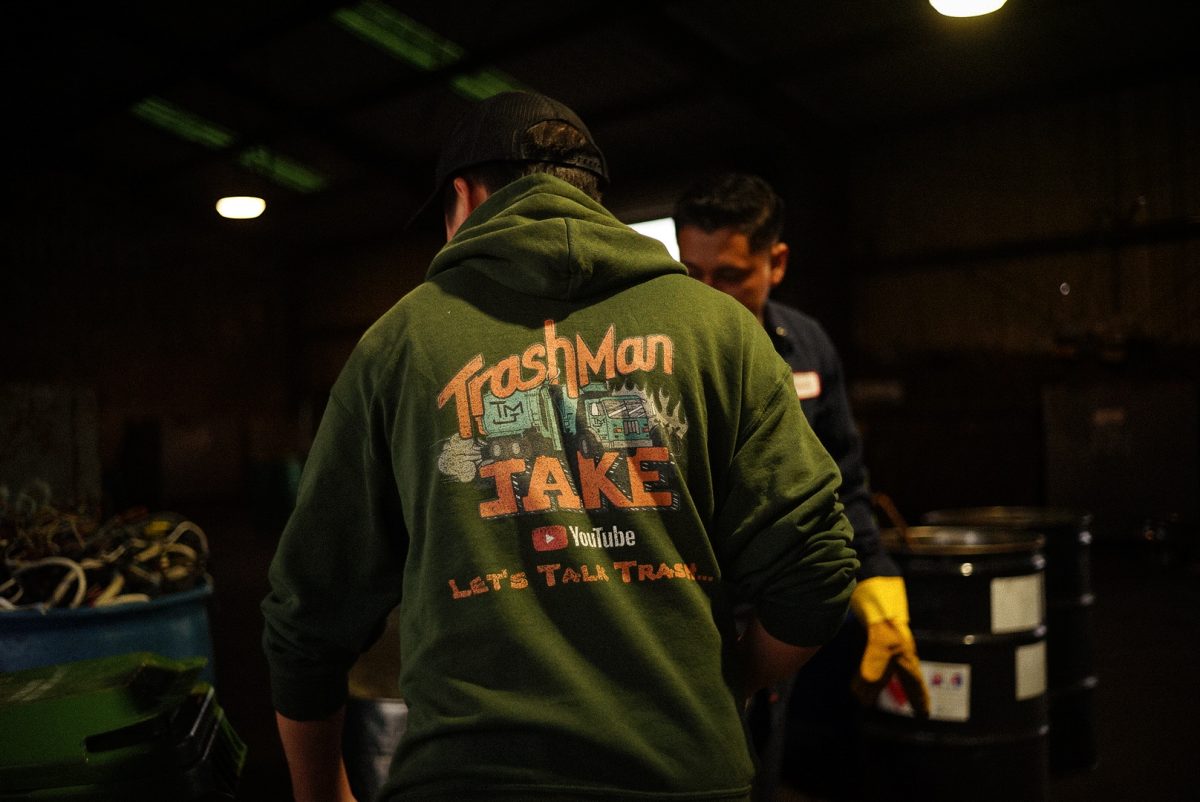After 146 days of darkened stages, the lights have been turned back on with film and television projects around the world starting production once again.
Late last month, the Writer’s Guild of America came to a tentative agreement with the Alliance of Motion Picture and Television Producers after over four months since the labor union went on strike.
But some questions remain related to the entertainment industry’s future, including the Screen Actors Guild, which began striking almost two months after the writers and still remains without a resolution.
What Led To The Strike
Writers in the WGA (Writer’s Guild of America) began striking May 2 after six weeks of salary negotiations between the WGA and the AMPTP (Alliance of Motion Picture and Television Producers).
The WGA’s proposals included an overall salary increase of $429 million dollars for writers in the union. The AMPTP’s counter proposal lowered that number to $89 million.
With a resolution creeping farther and farther out of sight, the labor union made the decision to walk out.
Leonard Beckerman is a former talent manager and producer, working previously for producing companies such as Anonymous Content and International Creative Management (ICM). Currently, he’s the World History teacher here at Venice High for those in the Sports Medicine program.
Beckerman described the ongoing conflicts between the different unions despite their past settlements.
“Both parties are trying to make a living,” Beckerman said. “They blame each other for either not paying them enough money or making too much money. There’s always that head to head of labor versus management.”
Going On Strike
During the strike, the Hollywood Reporter stated that writers in the WGA “cannot do any writing, revising, pitching, or discussing future projects with companies that are members of the AMPTP.”
With these restrictions, over 11,000 writers in the union were put out of work.
Nick Geisler is a film and television writer for the Disney Channel show Bunk’d and the Netflix sitcom Team Kaylie. He pointed out the necessity of the strike.
“The strike is about ensuring a stable creative working environment,” he said. “You should be able to live, work, and pay your rent in a creative career.”
As a WGA strike captain, Geisler would picket three to five days a week at Amazon Studios.
He mentioned that the striking writers would have talks about what to do if people made potential political outbursts, and at times the picket experience could be scary.
However, Geisler added that for the most part his experience was very “uplifting and positive” as he described the supportive community that developed during picketing.
“That community is what I’m going to remember more than any of the negatives,” he said.
After almost two months of striking with no end in sight, the writers were joined on July 14 by the Screen Actors Guild – American Federation of Television and Radio Artists (SAG-AFTRA).
The actors shared similar requests for actor’s residuals to account for, “the economic realities of the streaming revolution,” and the shared concerns of the rise of artificial intelligence (AI).
Approximately 160,000 people are in SAG-AFTRA and were put out of work due to the strike.
SAG member Andy Milder has been an actor for over 31 years, most notably appearing in the show Weeds and movies such as Apollo 13, Frost/Nixon, and more.
He echoed similar sentiments about the importance of the strike.
“People should be interested in people fighting to make a living,” he said, adding that the actors are striking now to benefit the people of the future.
New WGA Resolution
Over four months since the WGA first went on strike, the WGA and the AMPTP have finally reached a tentative agreement.
The two unions compromised to include an overall salary increase of $233 million dollars and the agreement is set to last from September 25, 2023 to May 1, 2026.
The agreement increased the minimum wage for writers and increased streaming residuals for both local and international productions. Writers will also now experience increased pay for longer series employment.
Additionally, there are now requirements in place “regarding the minimum number of writers who must be hired and the duration of their employment,” according to the WGA Contract website.
Along with this agreement, the WGA becomes the first labor union to have a definitive position on AI listed in their contract.
The agreement states that, “AI can’t write or rewrite literary material,” and that “AI-generated material can’t be used to undermine a writer’s credit or separated rights.”
“Every area we wanted to open up opened up,” Geisler said, expressing his overall satisfaction and happiness with the deal.
Furthermore, the agreement featured salary increase specifics as well as the procedures for ensuring there are enough writers on a production.
The Worries of Reality and International TV
Despite this new agreement, questions about the entertainment industry’s future still remain up in the air.
One concern many individuals have is the potential for a resurgence in reality television.
Back in 2008, reality television was a relatively small industry, with only a minimal amount of content being produced under that title.
However, when the 2008 writer strike came to a close, networks opted to produce more reality shows due to their lower costs and reduced unionization.
Heather Douglas has been a talent producer and booker for 20 years, whose career has led her to work on shows such as The Voice, Celebrity Family Feud, and the People’s Choice Awards.
She mentioned the numerous loopholes the industry already has in order to continue production despite any ongoing strike. Douglas explained how The Voice has a clause in their contract that prohibits any writers on the show from striking along with the WGA.
Along with Beckerman, she fears the potential workarounds executives may use to avoid paying writers and actors a fair wage.
Additionally, according to Ryan Gajewski, digital staff editor for the Hollywood Reporter, “when you look at the schedule for this fall, there are 38 hours of unscripted programming across the five broadcast networks, which is an 81 percent uptick from last year.”
There is also a concern of a potential rise of international television.
Networks can seemingly obtain these programs without unionized workers and receive payment from international companies, thus avoiding additional expenses.
When the 2023 WGA strike was looking more likely than ever, Netflix CEO Ted Sarandos said, “with what could easily be construed as smugness, that his streamer could weather a strike because of its growing library of international content.”
However, international unions around the world are not letting this slip by easily, and are actively working towards getting better pay for their members.
Specifically, The Korean Broadcasting Actors union are expressing their frustration with the limited pay for those who worked on the Netflix show Squid Games.
Furthermore, actor unions around the world are showing their support for the SAG-AFTRA strike despite the laws that prohibit the halt of production.
A Better Future
Actions like these provide hope for all of the hard-working members of the industry.
“We are creating a path for a healthier ecosystem for all writers and actors,” Geisler said.
Laura and Sean Cushing are the parents of freshman Lumi Cushing and both work in the entertainment industry.
Laura is an executive producer and head of CushCo Productions, working on documentaries such as Project Acheron: Patagonia and Lindsey Vonn: The Climb. Sean, meanwhile, is head of the VFX company Cantina Creative and has worked on blockbuster hits such as Avengers: Endgame, Free Guy, and Avatar: The Way of Water.
They both express their immense relief for the WGA’s resolution, adding how the strike impacted everyone in the industry.
“It’s a business and economic lesson in the giant city of Los Angeles and across the entertainment industry,” Laura says.
She adds how much support people have shown for those in the entertainment industry.
“Everybody wants the best for the artists and the hardworking people of our community, whether you are a producer, an actor, a writer, or the crew on set. We want everybody to be able to get back to work again and we are looking forward to it.”
It seems that now the only thing to look forward to is the SAG-AFTRA resolution.
“I can’t wait for the actor’s strike to end,” Sean says.
Reporter Ray LaFlam contributed to this piece.

